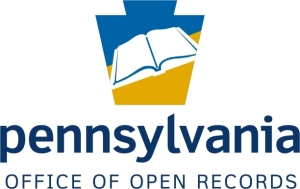 The Office of Open Records has issued the following Advisory regarding Pennsylvania’s Right-to-Know Law and the COVID-19 emergency.
The Office of Open Records has issued the following Advisory regarding Pennsylvania’s Right-to-Know Law and the COVID-19 emergency.
Last updated August 12, 2020, at 12:08 p.m.
***
All counties are in “yellow” or “green” status pursuant to the latest guidance published by the Pennsylvania Department of Health. Accordingly, all agencies should process RTKL requests as they would under normal circumstances.
The OOR encourages both requesters and agencies to be considerate and patient while working with each other, especially during the current emergency. Good communication between agencies and requesters is always important, but that’s even more true now.
Agencies: Please remember that transparency builds trust, especially in times of crisis.
Advisory regarding RTKL requests:
As of June 5, 2020, all counties are in “yellow” or “green” status pursuant to the latest guidance published by the Pennsylvania Department of Health. Accordingly, all agencies should process RTKL requests as they would under normal circumstances.
Advisory regarding RTKL appeals:
The OOR is committed to protecting due process, ensuring that all parties have a full and fair opportunity to meaningfully participate in any RTKL appeal filed with the OOR, and ensuring a proper review of all submissions. To that end, the OOR may invoke reasonable extensions on a case-by-case basis.
Any appeal filed electronically (i.e., via the OOR’s online appeal form or via email) will be docketed as usual. Currently, the OOR is only able to receive postal mail on a limited basis. Accordingly, there may be a slight delay in docketing any appeal filed via postal mail. Such appeals will not be prejudiced as to timeliness.
Because every staff member of the OOR is working remotely, we encourage requesters and agencies to use email for all appeal submissions at this time.
As stated above, all counties in “yellow” or “green” status pursuant to the latest guidance published by the Pennsylvania Department of Health should process RTKL requests as they would under normal circumstances. This is also true for RTKL appeals.
If either the agency or requester is (or both are) unable, due to the COVID-19 emergency, to meaningfully participate in an appeal under the deadlines set by the OOR, the OOR may take additional extensions. Depending on the specific circumstances, agencies requesting an extension may be required to provide evidence demonstrating why the appeal cannot proceed as scheduled.
The OOR’s mediation process is continuing for both ongoing and new mediations. Although it may take longer to schedule mediation discussions (many of which are handled via teleconference), the OOR will continue to do so.
We appreciate everyone’s patience in this process.
***
If and when events warrant any update to this advice, it will be posted here. Agencies are also welcome to contact the OOR with any questions (using the OOR contact form is the best way to reach us at this time, as we are all working remotely).
Information about COVID-19 is available from the Pennsylvania Department of Health and the Centers for Disease Control and Prevention.
